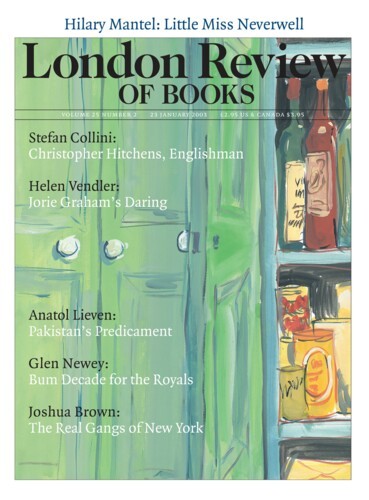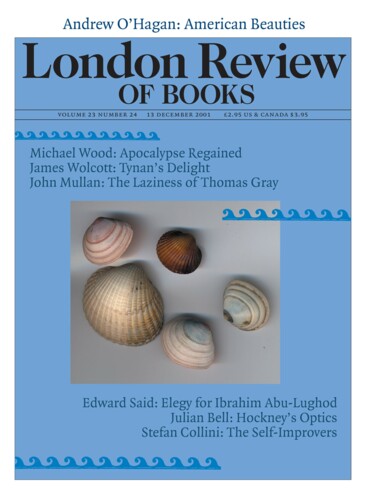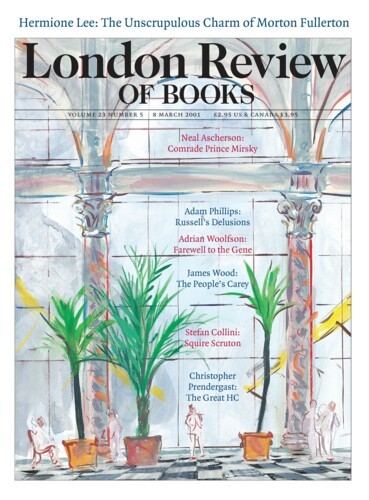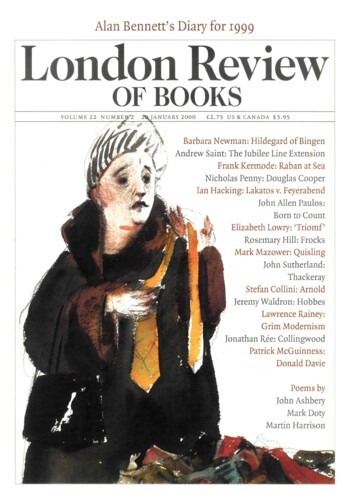‘No Bullshit’ Bullshit: Christopher Hitchens, Englishman
Stefan Collini, 23 January 2003
His preferred genre is the polemic; his favoured tone mixes forensic argument with high-octane contempt. And no one can accuse him of only picking on boys his own size: he is happy to take the ring against tubby, bespectacled former diplomats and little, shrivelled old ladies as well as (special contempt here) relatively fit joggers.




